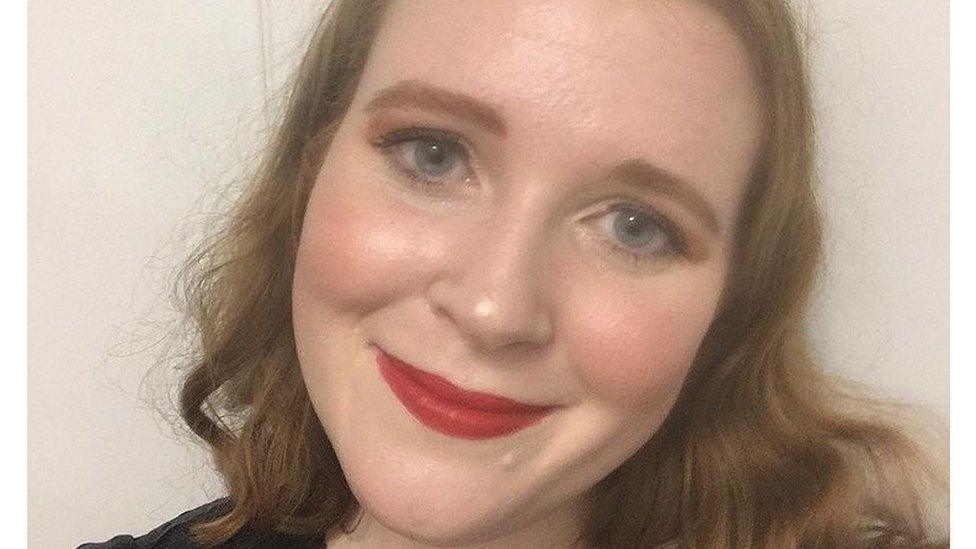Covid: A fifth of disabled people have work requests refused
- Published

Alexis Hutchinson is in the "clinically extremely vulnerable" category
One in five disabled employees had their request to work from home, be furloughed or redeployed during the pandemic rejected, research has shown.
Scope found 22% of disabled staff were put in an "impossible position" of having to choose between keeping their job or staying safe.
It wants the government to give people on the clinically extremely vulnerable list the automatic right to furlough.
The government said it was the employer's responsibility.
In a statement, the Treasury said: "Employers must ensure the safety of those with disabilities when considering working arrangements, including whether work can be completed remotely, and it is for employers to decide whether to make use of the furlough scheme."
Katie Cheval, 30, from Kent, has mobility issues, a learning disability, chronic asthma and mental health problems.
She was initially put on furlough from her retail job, but when she returned to work she did not feel safe and decided to resign. She is now looking for a new job.
"In a shop with no window you're right in the thick of it," she said. "We were given gloves which were too small and an apron, but I can't wear a mask due to my asthma and anxiety."
Ms Cheval said her employer held a meeting about safety precautions such as only one person using the till per shift.
"That went out of the window pretty quickly," she said. "I didn't feel safe."
'Lives on the line'
The survey of 1,004 disabled adults by the charity, found 18% had their request to work from home denied while 11% were refused a request to be furloughed. A further 11% were told they could not be redeployed within their company.
More than half (55%) said they felt disabled people had been "forgotten" in the government's economic recovery plan.
Alexis Hutchinson, 25, from Worcestershire, is a lay clerk - a professional choral singer. She has autoimmune hepatitis and fibromyalgia, and is in the extremely vulnerable category.
She was on flexi-furlough, which allows employers to bring furloughed staff back to work on a part-time basis, but has now been told she can return to furlough full-time until the government's current guidance is reviewed on 2 December.
Ms Hutchinson said: "What I really want from the government is to make sure people who don't feel safe going to work have the option to be furloughed, protecting the jobs and careers we have worked so hard for, without forcing us to put our lives on the line."
James Taylor, the executive director of strategy at Scope, said the fact it was "down to employer discretion" meant there was currently "no guarantee" disabled people would have their jobs and health protected.
"Furlough is a vital safety net for disabled people who don't feel safe in the workplace, but whose jobs cannot be done from home," he said.
- Published17 November 2020

- Published17 November 2020
